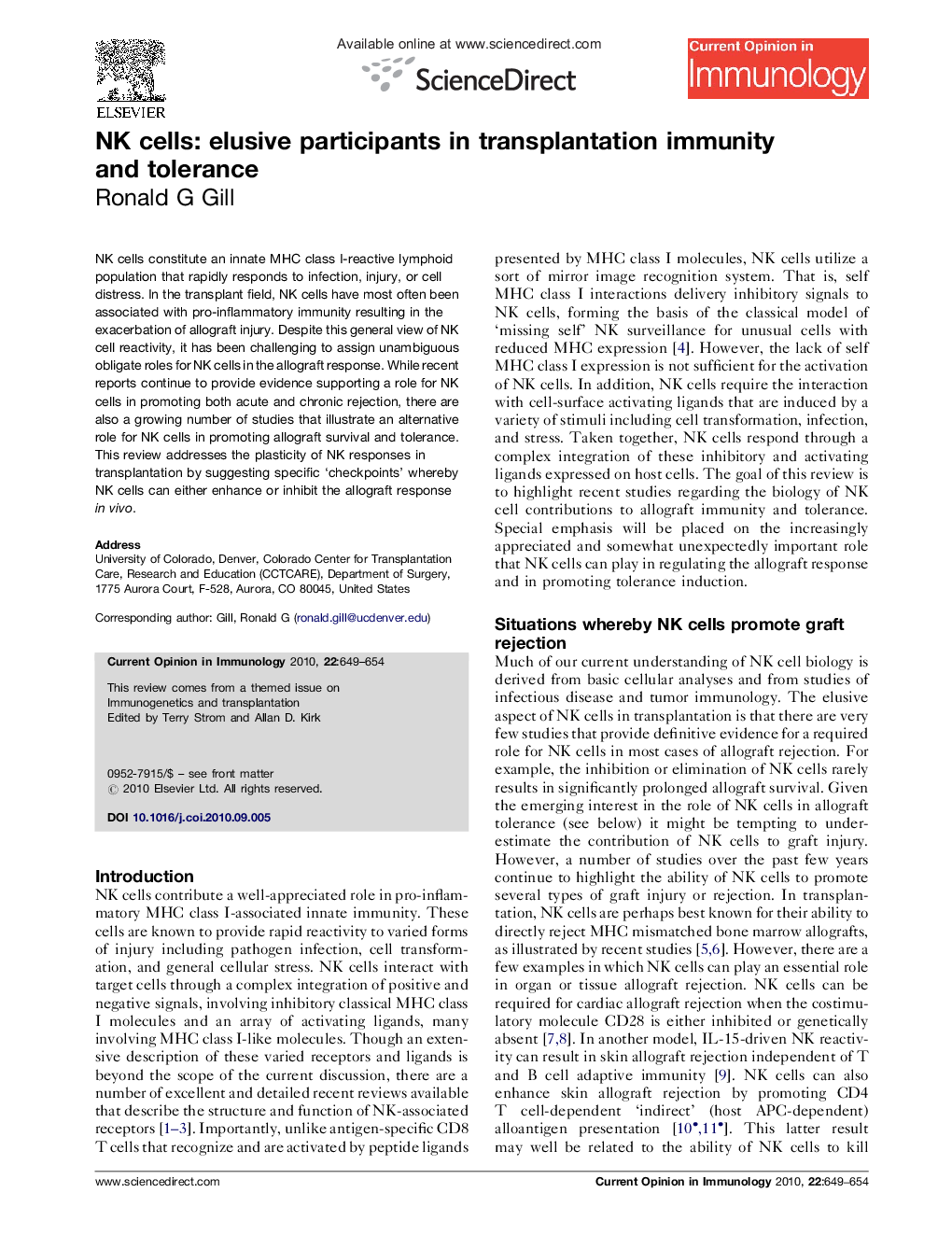| Article ID | Journal | Published Year | Pages | File Type |
|---|---|---|---|---|
| 6115319 | Current Opinion in Immunology | 2010 | 6 Pages |
Abstract
NK cells constitute an innate MHC class I-reactive lymphoid population that rapidly responds to infection, injury, or cell distress. In the transplant field, NK cells have most often been associated with pro-inflammatory immunity resulting in the exacerbation of allograft injury. Despite this general view of NK cell reactivity, it has been challenging to assign unambiguous obligate roles for NK cells in the allograft response. While recent reports continue to provide evidence supporting a role for NK cells in promoting both acute and chronic rejection, there are also a growing number of studies that illustrate an alternative role for NK cells in promoting allograft survival and tolerance. This review addresses the plasticity of NK responses in transplantation by suggesting specific 'checkpoints' whereby NK cells can either enhance or inhibit the allograft response in vivo.
Related Topics
Life Sciences
Immunology and Microbiology
Immunology
Authors
Ronald G Gill,
